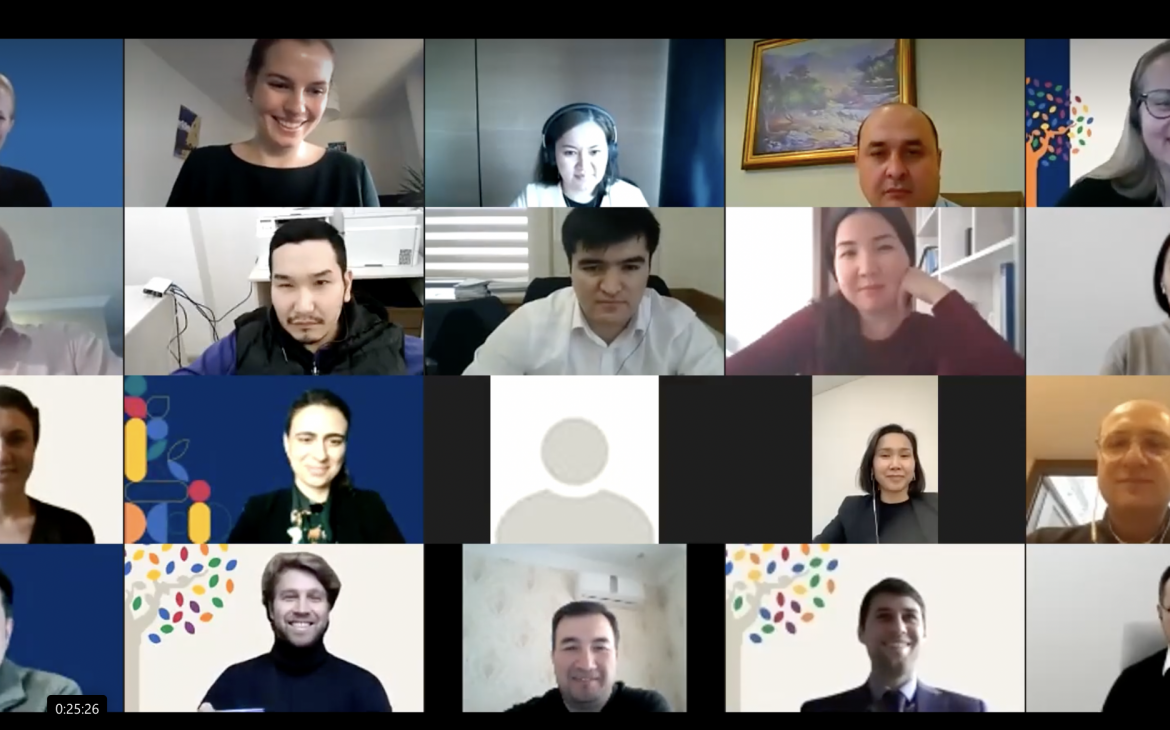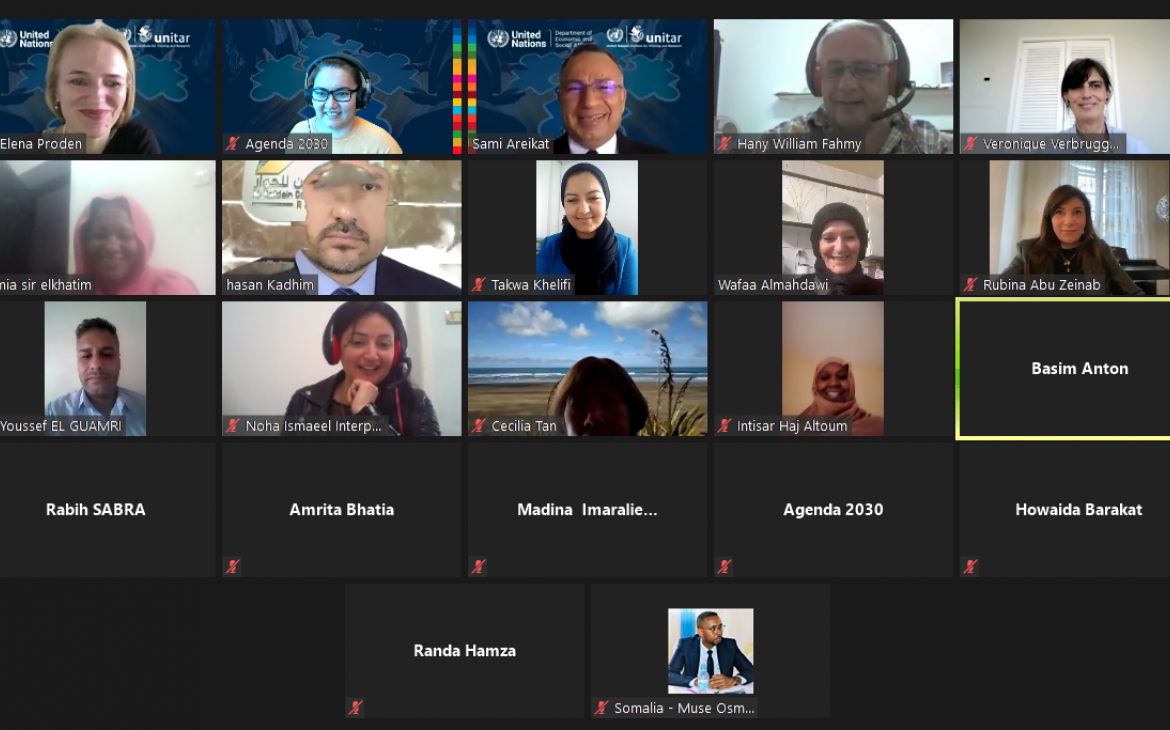September 2021 - The COVID-19 pandemic has impacted the lives of people, and countries’ economies in unprecedented ways. The governments’ efforts to achieve the global 2030 Agenda have halted or even rolled back as a result of the global health crisis. A number of short-term measures had to be taken to respond to this health emergency and then address the recovery through significant money injections. This short-term response has, however, at times failed to account for mid-term and long-term effects and objectives. The need for a sustainable recovery as part of a more integrated and forward-looking vision has been broadly recognized by many countries and stakeholders as the basis for the achievement of the SDGs and national priorities.
The Strategic Implementation of the 2030 Agenda Unit (2030 Agenda Unit) joined forces with several UN Agencies to support countries in their efforts to link recovery plans with longer-term development priorities and ensure financial resources follow accordingly. From 17th March to 18th April 2021, jointly with the Division for Sustainable Development Goals (DSDG) and Division for Public Institutions and Digital Government (DPIDG) of the United Nations Department of Social and Economic Affairs (UNDESA), UNITAR delivered a facilitated e-learning course “Integrated Recovery Planning and Policy Coherence towards the Sustainable Development Goals (SDGs)” with weekly webinars and exercises to six countries from the Arab region, namely Morocco, Iraq, Sudan, Lebanon, Egypt, and Somalia.
The objective of the self-paced e-learning course was to strengthen the capacity of national stakeholders to design, adapt and implement integrated and coherent plans and policies and to ensure integrated decision making. The target audience was composed of policymakers, senior planners, civil society, academics, and private sector representatives involved in recovery planning (i.e., Covid-19) and rebuilding towards SDGs implementation. The e-learning course builds on UNDESA and UNITAR's partnership since 2019 where a unique system-based, step-wise methodology and related training have been developed to promote integrated policies and policy coherence for the SDGs.
Overall, the course aimed to offer key insights and robust solutions to interlinkages within complex systems, identifying leverage points for transformative change, and creating coherent strategies, plans, and policies for building back better during disaster recovery, enhancing long-term resilience, and transforming progress toward the SDGs. Conducted in the backdrop of the ongoing COVID19 crisis, this e-learning course was able to effectively engage participants digitally, and ensure fruitful interaction not only among themselves but also with the facilitators and experts conducting the webinars. 39 participants nominated from the above 6 countries participated in the course. The evaluation of the course showed that 95% of the course respondents felt that their knowledge and skills about a system thinking-based methodology for Integrated and coherent policy analysis and planning overall - and in mitigating the impact of the COVID-19 pandemic more specifically - has increased as a result of taking this e-learning course.
This course is now available as a massive open online course, accessible here and was presented later during the Learning Session entitled “Integrating recovery planning from COVID-19, building resilience and strengthening policy coherence towards the SDGs” as part of the SDGs Learning, Training & Practice Center’s learning sessions on the sidelines of the 2021 High-level Political Forum on Sustainable Development (HLPF).
In 2021, jointly with ESCAP, UNDP, FSDO – UNDESA, and ECA, the 2030 Agenda Unit has conducted three regional training events around the Integrated National Financing Frameworks (INFFs) starting in January with the sub-regional training for the North and Central Asia, then for the Asia-Pacific region at the end of March 2021 back-to-back with the Asia Pacific Forum on Sustainable Development (APFSD) and a recent for the African countries.
Financing for sustainable development remained a big challenge for the countries despite the concrete measures stipulated in the Addis Ababa Action Agenda. According to the 2021 Financing for Sustainable Development Report, the COVID-19 pandemic has widened the financing gap to 70% from the estimated annual $ 2.5 trillion to finance the achievement of the SDGs. This is an additional $ 1. 7 trillion per year putting a big burden on the economies of the countries.
The INFF training workshops, conducted virtually, brought together more than 1200 participants representing ministries of finance, economy, labor, environment and health, as well as think tanks, NGOs, Parliament, UN organization and academia, to share knowledge and build capacity to design and implement an integrated approach to financing the 2030 and Addis Ababa Action Agendas.
Training workshops laid out the methodology and dived deep into the four INFF building blocks explaining how the countries could implement in practice a more holistic and forward-looking approach to financing national priorities and SDGs leveraging different data sources. Topics discussed in more detail included SDG-aligned budgeting, SDG costing and SDG-themed bonds in the NCA region and ECA integrated planning and reporting toolkit for Africa. The sessions provided space for the exchange of experiences between countries and within governments, featuring case studies and expert speakers from governments, think tanks, and UN agencies, and break-out sessions to allow participants to apply what they had learned and discuss the approaches within their national context. For instance, one of the leading countries in the Asia-Pacific region, Mongolia shared their experience with INFFs conducting Development Financing Assessment (DFA) in addition to SDG prioritization and costing exercise, developing financing strategies under Mongolia’s “Vision 2050”, as well as their ground-breaking work on budgeting for the SDGs.
The four building blocks of the INFFs include Assessments and Diagnostics, Financing Strategy, Monitoring and Review, and Governance and coordination mechanisms. Among topics of most interest to participants depending on how far their countries have progressed on INFFs were the strengthening and enhancing of INFF oversight committees, SDG-budget tagging, and conducting a feasibility study on INFFs. Countries have also shown great interest in further training in INFFs going in-depth on specific topics and real examples from other countries.
The 2030 Agenda Unit, building on the cooperation with UNDP, has developed an e-learning course on Budgeting for the SDGs that is soon to be launched. Other e-learning courses on INFFs, jointly developed by key organizers of the INFF workshops, are also underway.



